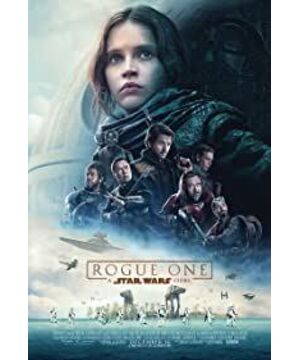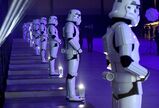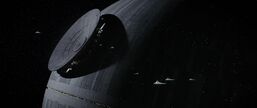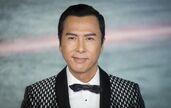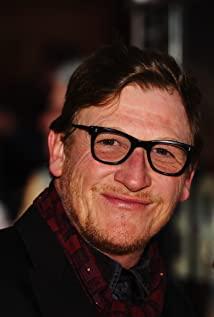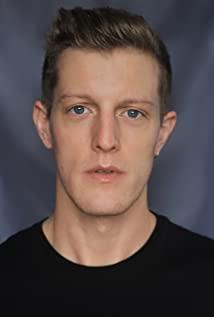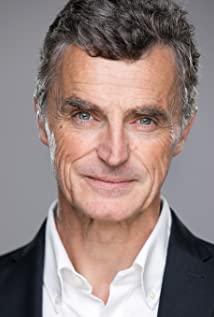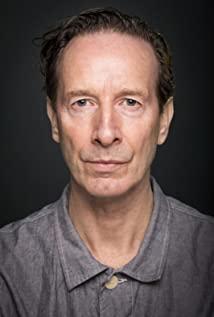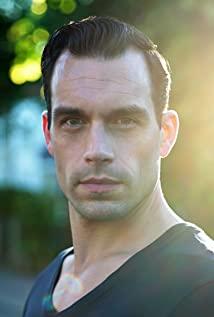Liao Weitang, the
heroes, are forbidden by martial arts. Thieves and thieves have the right way. "Rogue One" with a meaningful and good name is undoubtedly the best Star Wars biography in recent years, and some people even think that it has surpassed several master stories to become one of the best Star Wars movies.
The setting follows the same step with the traditional Star Wars aesthetic style, and then breaks the standard to a certain degree; the ability to arrange a battle, the battle at all levels is methodically like a fire net fabric, in which countless other sets of other Star Wars movies can be interspersed. Forging the eggs, I see the director's attentiveness; jumping out of the main line of Star Wars, all kinds of father and son love feuds, this time I set up emotional dramas with isolated fathers and daughters, and the taste is bitter and long... These are the apparent advantages of "Rogue One".
But what makes Rogue One an indispensable part of the history of Star Wars is that it takes the core of it straight, and it touches on a question that Star Wars has always been the background and taken for granted without reflection: What is the revolution? Moreover, the answer to this question is related to the Star Wars keyword: "The Force".
When this problem first appeared, it was somewhat abrupt. As a spy, the revolutionary army (or: Rebellion, Rebellion, Rebellion) elite Captain Amdo, did not hesitate to kill a vacillating traitor. What reminded me was Mr. Yi in "Lust and Caution." This is not so politically correct nor so humanitarian. Once the star wars movies have been both righteous and evil, black and white, it has revealed a problem that our contemporary history often encounters: What is the bottom line of the revolution's demand for sacrifice? A stained revolution is not a pure revolution?
Of course, this is not a problem for most revolutionaries. As long as they believe in the need for doctrine, or the need for the ultimate victory of the collective, the weeds on the road can be removed at will, even relatives and friends, even their loved ones and themselves. Can be sacrificed. Those who care about these "sections" are the so-called cowardly petty bourgeois humanists. For example, in Yan'an, Wang Shiwei and Xiao Jun, who sympathized with him, were very difficult to achieve in the eyes of revolutionaries.
In "Rogue One", there is one more concept: righteousness. The "righteousness" of Captain Amdo Nianzi here drove him as a spy to kill for justice. The slain can be suspects or innocents. The revolutionary army's actions in the name of revolution may not be all justice. "As a concept, is there any difference between objective "justice" and "justice"?
This question came to a climax when Captain Amdo received an order to kill the imperial scientist Gran Erso, the father of the heroine, Qin. Amdo is a complicated person. On the one hand, he is loyal to the revolutionary army and is willing to do anything for the revolution. On the other hand, he has a slight trust in the "independent actor" Qin based on human nature, and later developed into love. Qin asked Amdo to trust her father when Cao Yingxin was in Han, and the subtext that Qin emphasized was: trust between individuals is the key to rebuilding "righteousness". Because of his unbelief, Amdo killed the possible apostasy, and because of his belief, Amdo eventually violated the order of the organization and did not shoot Gran Erso.
The relationship between "faith and righteousness" has an understanding that is different from that of Chinese morality. If there is no faith, righteousness cannot be established, and if there is no righteous faith, it is blind faith. From this point of view, why is the blind man "Zhi Blade" (played by Donnie Yen), the highlight of the film, the most blind person who can see clearly than anyone else? Because he has faith. To dunya, Thaksin believes in his partner Beth (Jiang Wen), and to heaven and earth, Thaksin believes in the force. When he rushed out of the cabin to the cliff for the first time, he said to Beth behind him, "I don't need luck, I have you." Being with me, the force is with me", although he is not a Jedi knight, his beliefs are the same.
Regarding the sacrifices required for the revolution, the common saying is that “to struggle requires sacrifices, and deadly things happen frequently” (Mao Zedong’s "Serving the People")-but sacrifices should be based on individual decisions. "Chivalry", which goes hand in hand with faith, is free will. Whether it is to survive or to die, it must be the free choice of individualism. The paradox of the revolution is: revolutionaries revolutionize for the happiness of individuals, others, and collectives, but the revolution requires you to sacrifice your personal happiness. Ding Ling and Wang Shiwei questioned this in Yan'an, but they couldn’t stop the female students from fleeing the arrangement. The tragedy of marrying an old revolutionary cadre after marriage cannot save the abandoned infants on the Long March.
Revolutionaries need the will of steel. The initial test of this will is often to ask you to "righteously destroy your relatives." But the thief is different from revolutionaries. For humanitarians with free will, the righteousness does not need to destroy relatives, but family affection achieves great righteousness. Captain Amdo and his spies were inspired by Jean’s trust in his father, and they resolutely attacked the empire in the form of a death squad. Finally, they also summoned most of the revolutionary army into battle, and won the first victory of the Revolutionary Alliance over the empire— -All of these are actions that have not been approved by the "organization", which shows the front line separation between revolution and democracy, and the influence of individual choices on collectivism.
Throughout the many flesh and blood characters, the film emphasizes the niche and marginal identities as "Rogues": orphans, defectors, dissidents, people of color, alien mercenaries, homosexuals, and low-level robots modified by programming. ...Why is the Force? With whom? It's not just the advanced Jedi knights who are with the Force, but the Force itself is based on a singular act of righteousness--thieves are also right. It is these inexhaustible individual sacrifices that converge into a new original force, and at the same time restore the institutionalized, utilitarian and stale revolution back to a revolution full of individual imagination.
A chivalrous man, kill one person in ten steps and never stay for a thousand miles. "Rogue One" is the prequel to the canon of Star Wars "New Hope", and it is precisely named as a knight that those little-known victims of the great revolution stay on the road. Thousands of rebels and guerrillas who died with the planet Scarif of the Empire, like the protagonist Qin and Amdo, laughed at destruction, because they knew that sacrifice was an active suicide, as Camus said: " Death is something we cannot get rid of. Everyone has his own death." "In addition to useless physical suicide and mental escape, the third attitude of suicide is to persevere in struggle and fight against the absurdity of life." It is
not necessary for them to succeed . It's the glimmer of light before dawn. Before his death, Zhi Blade said: "Find the Force, and you can find me." Just as Che Guevara said: "I am not a hero, but I fight side by side with heroes." The robbers may not be successful revolutionaries in the end. They only used their own choices and commitments to enlighten the possibilities that revolution is based on hope rather than hatred.
The original Tencent Everyone http://xw.qq.com/iphone/m/24persecond/f68f71e02426501de7280446bc879b42.html
View more about Rogue One: A Star Wars Story reviews


